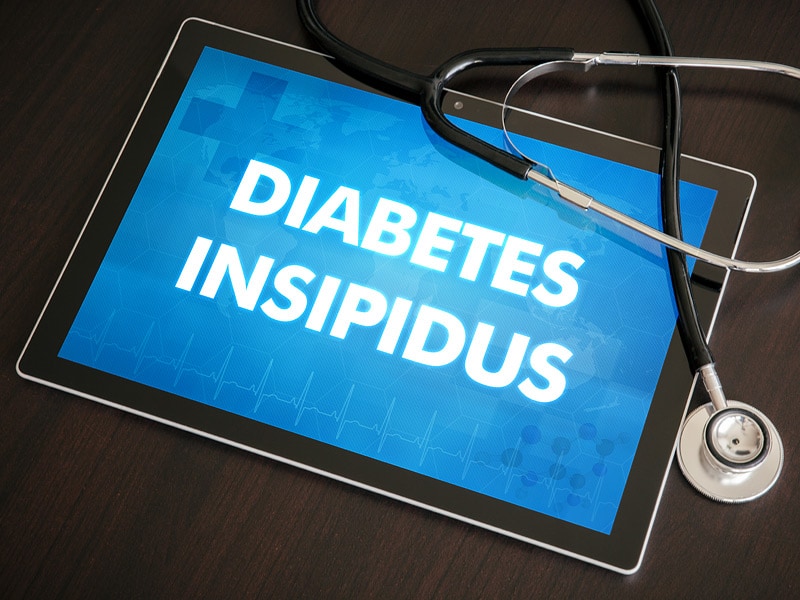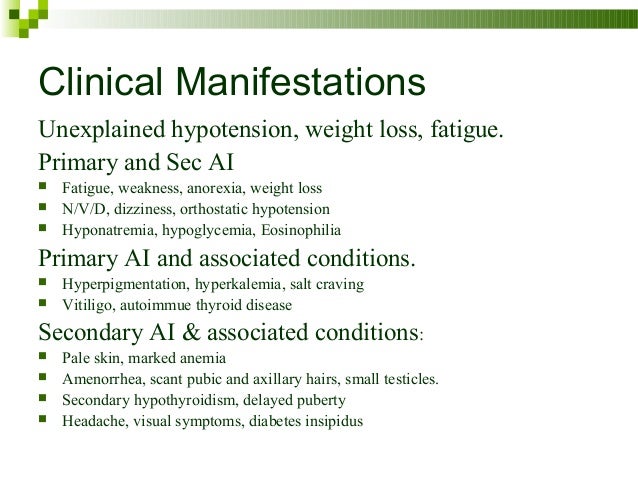Diabetes Insipidus Weight Loss
The main complication of diabetes insipidus is dehydration if fluid loss is greater than liquid intake. a health care provider can diagnose a person with diabetes insipidus based on a medical and family history, a physical exam, urinalysis, blood tests, a fluid deprivation test, and magnetic resonance imaging (mri). If that is true that it is the management of your diabetes insipidus that will help you the most in terms of controlling your weight. i would be encouraged if i were you by the fact that you can lose 5 pounds, which means that you probably have not had damage in the appetite control part of the hypothalamus.
Symptoms of diabetes insipidus are very similar to those of diabetes mellitus, except that the urine does not contain high sugar levels. diabetes insipidus can interfere with appetite and eating. in children, it can interfere with growth and weight gain. Central diabetes insipidus is completely unrelated to diabetes, even though they share the symptoms of peeing more and feeling thirsty. it's also called "central di," "pituitary di," "hypothalamic. Diabetes insipidus is a different disease from diabetes mellitus. their names are similar, but the only things they have in common is that they make you thirsty and make you pee a lot. Weight loss the weight loss that may be experienced with central diabetes insipidus isn’t due to the burning of fat, but because of the increased amount of water that is being expelled from the body. the weight loss is almost always 100% water weight.
Diabetes Insipidus Symptoms Weight Loss Medhelp
Diabetes insipidus better health channel.
Symptoms of central di in children may be: low energy irritability slow growth weight loss fever vomiting. We report a breastfed neonate with hypernatremic dehydration, diabetes insipidus, cerebral sinus thrombosis, and disseminated intravascular coagulation. we discuss the difficulties in determining cause and effect, as well as emphasize the importance of early evaluation of excessive weight loss in the neonate. reason people with craniopharyngiomas tend to have it diabetes insipidus (di) is uncontrollable fluid loss (ie bladder filling up with diluted urine) Diabetes insipidus is a condition where the body loses too much fluid through urination, causing a significant risk of dangerous dehydration as well as a range of other illnesses and conditions.
Diabetesinsipidus (di) is a disorder in which there is an abnormal increase in urine output, fluid intake and often thirst. it causes symptoms such as urinary frequency, nocturia (frequent awakening at night to urinate) or enuresis (involuntary urination during sleep or “bedwetting”). urine output is increased because it is not concentrated normally. Diabetes insipidus (di) is a condition caused by hyposecretion of, or insensitivity to the effects of, antidiuretic hormone (adh), also known as arginine vasopressin (avp). adh is synthesised in the hypothalamus and transported as neurosecretory vesicles to the posterior pituitary. Poor growth and weight loss may be noticed in babies with diabetes insipidus. they may also appear irritable and difficult to settle. older children may have problems with bedwetting at night and also incontinence of urine during the daytime.
Unexplained Weight Loss Diabetes
Diabetes insipidus (di) is a disorder in which there is an abnormal increase in urine output, fluid intake and often thirst. it causes symptoms such as urinary frequency, nocturia (frequent awakening at night to urinate) or enuresis (involuntary urination during sleep or “bedwetting”). urine output is increased because it is not concentrated normally. Type 2 diabetes is very closely associated with weight, with over 90% of newly diagnosed type 2 diabetics above their ideal weight. being overweight can hurt your confidence, and getting back to a healthy weight can seem like a never-ending challenge. losing some weight could both prevent you from developing diabetes, or help you to Weightloss failure to thrive types. there are two types of diabetes insipidus and both are directly related to the pituitary gland and how it interacts with the diabetes insipidus weight loss body. central diabetes insipidus (cdi) caused by the pituitary gland not releasing enough of the hormone called vasopressin which is an antidiuretic hormone.


3 Diabetes Insipidus Nursing Care Plans Nurseslabs
Diabetes insipidus can be caused by two flaws in this process: the hypothalamus isn't making enough vasopressin or the kidneys aren't responding to the hormone. either way, the result is the loss of too much water in the urine, leading to the characteristic symptom of excessive thirst. Unexplained weight loss in older children, symptoms of diabetes insipidus include: wetting the bed (enuresis) although most children who wet the bed do not have diabetes insipidus ; loss of appetite ; feeling tired all the time (fatigue). Now ive been dx with diabetes insipidus with damage to my hypotalamus. i am gaining weight and my hair is so dry it just breaks off. very tired and cant sleep very good. is this a side effect of the diabetes insipidus. what does hypotalamus do? i have daily headaches. i know this isent a thyroid community but could this be why i am gaining weight? all my labs are on the low normal. gained 25 pnds in a.


7. weight loss. the weight loss that may be experienced with central diabetes diabetes insipidus weight loss insipidus isn’t due to the burning of fat, but because of the increased amount of water that is being expelled from the body. the weight loss is almost always 100% water weight. Diabetes and sudden weight loss in people with diabetes, insufficient insulin prevents the body from getting glucose from the blood into the body’s cells to use as energy. when this occurs, the body starts burning fat and muscle for energy, causing a reduction in overall body weight. An infant or young child with diabetes insipidus may have the following signs and symptoms: heavy, wet diapers bed-wetting trouble sleeping fever vomiting constipation delayed growth weight loss. Central diabetes insipidus. damage to the pituitary gland or hypothalamus from surgery, a tumor, a head injury or an illness can cause central diabetes insipidus by affecting the usual production, storage and release of adh. an inherited genetic disease can also cause this condition. nephrogenic diabetes insipidus.
Unexplained weight loss is the term used to describe a decrease in body weight that occurs unintentionally and can be a warning sign of diabetes. the amount you weigh is determined by a number of factors including age, your calorie intake and overall health. once you reach middle adulthood, your weight should remain relatively stable Diabetesinsipidus (di) is a hereditary or acquired condition which disrupts normal life of persons with the condition; disruption is due to increased thirst and passing of large volumes of urine, even at night. a systematic search of literature for di was carried out using the pubmed database for the purpose of this review. There are different types of diabetes, one being diabetes insipidus—an uncommon disorder that affects our pet’s ability to conserve water. because of this disease, your dog or cat urinates and drinks diabetes insipidus weight loss water excessively in an attempt to keep up with the loss of water through the urine.

Comments
Post a Comment